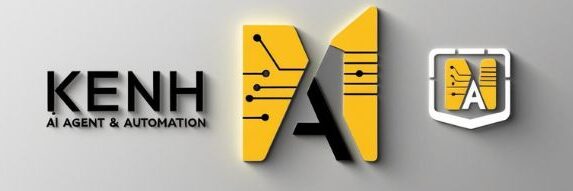AI News Today: Enterprise Adoption of AI Agents
Introduction
AI agents have moved beyond experimental tools—they are now being embraced by global enterprises to automate complex workflows, reduce costs, and deliver exceptional customer experiences. In 2025, enterprise adoption of AI agents marks one of the most significant shifts in the AI landscape.
In this article, we explore the rising trend of enterprise-level deployment of AI agents, real-world case studies, and what businesses need to consider to integrate these intelligent systems effectively.
What is Enterprise Adoption of AI Agents?
Enterprise adoption refers to the scaling and operational integration of AI agents within mid-size to large organizations. These agents go beyond chatbots; they’re autonomous systems capable of:
Decision-making based on data
Handling repetitive and time-consuming tasks
Collaborating with existing business tools
Operating with long-term memory and goal management
Why Enterprises Are Turning to AI Agents
Cost Reduction: Replacing manual work with automation
Speed & Efficiency: Instant processing of repetitive or data-heavy tasks
Customer Expectation: 24/7 intelligent service
Scalability: AI agents can handle increasing volume without increasing headcount
Key Components of Enterprise AI Agent Architecture
1. Advanced Large Language Models (LLMs)
Enterprises are primarily using:
GPT-4 / GPT-4o (OpenAI)
Claude 3 (Anthropic)
Gemini (Google)
These models power the conversational, reasoning, and decision-making capabilities of agents.
2. Enterprise-Grade Orchestration Tools
Platforms used include:
LangChain: For multi-step reasoning and memory
Autogen Studio: Microsoft’s multi-agent orchestration
Flowise / LangFlow: For visual programming
Zapier, Make.com: No-code API integration
3. Secure Data Layer Integration
Connecting agents to:
CRM (Salesforce, HubSpot)
ERPs (SAP, Oracle)
Data lakes and internal APIs
Vector databases (Pinecone, Weaviate) for memory recall
4. Governance & Observability Layer
Enterprise AI agents need:
Audit logs
Explainability reports
Human-in-the-loop oversight
Bias and toxicity filters
Real-world Applications of AI Agents in Enterprises
1. Customer Service Automation
Chat and email agents auto-respond to inquiries
Escalation handled through agent-human handoff
Dynamic knowledge retrieval from documentation or CRMs
Example:
Zendesk integrates GPT-based agents to reduce human tickets by 40%
2. Finance and Procurement
Automating invoice verification
Drafting reports for monthly close
Running predictive analytics on spend data
3. Human Resources
AI agents help screen resumes and schedule interviews
Internal knowledge agents answer HR queries for employees
4. Sales & Marketing
Personalized email campaigns using GPT-4
AI agents generate insights from CRM data
Market sentiment analysis bots for real-time feedback
Case Study: AI Agent for Customer Service at Global Telecom Co.
Objective:
Reduce human workload in support while improving response quality and consistency.
Setup:
Tools: Claude 3 + LangChain + Zendesk + Salesforce
Functionality:
Reads customer issues
References knowledge base + CRM history
Drafts response using empathetic tone
Logs ticket outcomes and insights
Outcomes:
60% of tickets resolved with no human intervention
Customer satisfaction score rose by 18%
Human agents now focus on high-impact tickets
Challenges and Considerations for Enterprise AI Agent Adoption
1. Data Privacy and Compliance
AI agents often process sensitive personal and business data
Enterprises must ensure compliance with:
GDPR (EU)
HIPAA (US)
ISO/IEC 27001 standards
2. Security Risks
Prompt injection attacks
Leakage of sensitive data via unfiltered outputs
Mitigated using prompt sanitization, sandboxing, and restricted access policies
3. Change Management
Internal resistance to AI
Requires cultural adaptation, training, and clear role redefinition
4. Reliability and Hallucination
Even enterprise-tuned LLMs can generate incorrect or misleading answers
Solutions include:
Retrieval-Augmented Generation (RAG)
Human-in-the-loop workflows
Fine-tuning and prompt chaining
5. Vendor Lock-in
Enterprises must weigh build vs. buy decisions carefully
Open-source options (e.g., LangChain, AutoGen) help reduce dependency
Future Outlook for Enterprise AI Agent Integration
1. Multi-Agent Collaboration
Enterprises will deploy swarms of agents:
Planner agents
Research agents
Execution agents
These agents will coordinate to solve complex workflows
2. Natural Language Interfaces for Business Apps
“Ask your CRM” or “Query your BI dashboard”
Language-native interfaces to internal systems
3. AI Agent PMOs (Project Management Offices)
Enterprises will form internal AI teams (AgentOps) to:
Design
Deploy
Monitor agent performance
4. Vertical-Specific Agents
Custom agents for:
Healthcare (clinical documentation)
Legal (contract analysis)
Manufacturing (predictive maintenance)
5. Agent and Human Teaming
The most successful models will not replace workers but augment them—AI agents as copilots, not competitors.
Getting Started with Enterprise AI Agents
Phase 1: Pilot
Start with one department (e.g., support or HR)
Use a no-code or low-code agent tool
Monitor KPIs and fine-tune based on performance
Phase 2: Expand
Deploy to additional business units
Connect to central data lake or ERP
Introduce retrieval and feedback loops
Phase 3: Govern
Establish internal ethics committee
Create a prompt library
Implement audit tools and observability
Top Tools for Enterprise AI Agent Deployment
| Tool | Functionality | Enterprise Ready? |
|---|---|---|
| LangChain | Custom agent workflows with memory | ✅ Yes |
| Autogen (Microsoft) | Multi-agent orchestration platform | ✅ Yes |
| Flowise | Visual AI workflow builder | ✅ With monitoring |
| Zapier AI | Business automation + LLMs | ✅ Yes |
| OpenAI GPT-4 API | Core LLM engine | ✅ Yes |
| Anthropic Claude | Safer LLM for regulated industries | ✅ Yes |
Final Thoughts
The era of enterprise AI agents is here—not just as novelties but as mission-critical systems. From customer service to procurement and HR, businesses are seeing real ROI by deploying AI agents that can think, act, and learn.
However, successful adoption requires clear strategy, ethical governance, and continuous improvement.
Ready to bring AI agents into your enterprise?
🚀 Join our recommended AI platform and start building enterprise-grade AI agents today—no technical background required.
